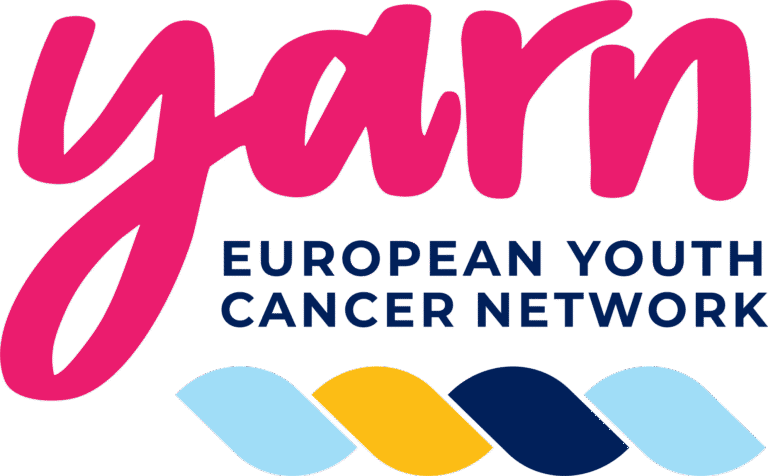
Recovering from cancer is a journey that challenges your body and mind, and the food you eat plays a crucial role in this process. Nutrition isn’t just about fueling your body—it’s about helping you rebuild strength, boost immunity, and support healing after treatments like chemotherapy or surgery. The right nutrients can make a world of difference in how you feel and recover.
Your body’s needs change during recovery, and focusing on balanced meals packed with vitamins, minerals, and protein is essential. Whether you’re dealing with fatigue, loss of appetite, or digestive issues, understanding how to nourish yourself can empower you to take control of your health. With the right approach, food becomes more than just sustenance—it’s a powerful tool for healing.
Key Takeaways
- Proper nutrition plays a vital role in cancer recovery by supporting healing, boosting immunity, and rebuilding strength.
- Include nutrient-dense foods like lean proteins, whole grains, healthy fats, leafy greens, berries, nuts, and fatty fish to promote recovery.
- Stay hydrated with water, herbal teas, and fluid-rich foods like cucumbers and watermelon to aid digestion and body functions.
- Avoid processed meats, sugary foods, refined carbs, fried items, and high-sodium foods to prevent complications and support healing.
- Tailor your diet to address specific recovery needs, side effects, and cultural preferences with guidance from a healthcare provider or dietitian.
- Regularly reassess your nutritional plan as recovery progresses to ensure it meets evolving health and energy demands.
Understanding The Role Of Nutrition In Cancer Recovery
Nutrition influences your body’s ability to recover from cancer by providing essential building blocks for repair and regeneration. Balanced diets rich in lean proteins, whole grains, healthy fats, vitamins, and minerals can enhance energy levels and promote tissue healing. During this phase, prioritizing nutrient-dense foods like leafy greens, berries, nuts, and fish ensures your body gets the fuel it needs.
Cancer treatments often weaken the immune system, making nutrition essential for restoring its function. Antioxidant-rich foods like spinach, carrots, and blueberries help protect cells from damage, while zinc-containing options like meat, beans, and seeds support immune repair processes.
Digestive health can also benefit from targeted nutrition during recovery. Fiber-rich foods like oats, legumes, and fresh fruits aid digestion and prevent treatment-induced constipation. Fermented options like yogurt or kefir introduce beneficial probiotics that balance gut bacteria.
Hydration further supports your body’s recovery. Drinking sufficient water, herbal teas, or clear broths maintains energy, regulates body temperature, and flushes out toxins. Including fluid-rich foods like cucumbers and oranges can help meet hydration goals if drinking becomes challenging.
Understanding how each nutrient contributes to healing empowers you to create a recovery-focused eating plan that aligns with these needs.
Essential Nutrients For Cancer Recovery
Nutrition plays a critical role in aiding your body’s healing process after cancer treatments. Focusing on key nutrients helps meet your recovery needs and boosts overall strength and immunity.
Proteins And Their Importance
Proteins support tissue repair, muscle maintenance, and immune function. They form the basis for rebuilding cells after surgery, radiation, or chemotherapy. Include lean sources like chicken, turkey, and eggs; plant-based options like lentils, tofu, and chickpeas; and seafood like salmon. Aim for at least 1.0 to 1.5 grams of protein per kilogram of body weight daily, depending on your medical team’s recommendations, to meet recovery demands.
Vitamins And Minerals For Healing
Vitamins and minerals accelerate the recovery process by enhancing the immune response and promoting tissue regeneration. Vitamin C supports wound healing and boosts immunity, while Vitamin D helps bone health and immune function. Include oranges, papaya, spinach, and fortified cereals. Minerals like zinc aid in cell repair, and magnesium helps reduce muscle cramps. Incorporate foods like pumpkin seeds, almonds, whole grains, and dark leafy greens to address these needs.
The Role Of Healthy Fats
Healthy fats provide energy and reduce inflammation, aiding in recovery. Sources like avocados, olive oil, almonds, and walnuts supply monounsaturated and polyunsaturated fats, which support cell health. Omega-3 fatty acids found in fatty fish, chia seeds, and flaxseeds help combat inflammation caused by treatments. Aim to include healthy fats in moderate amounts across your daily meals to balance caloric intake effectively.
Foods To Include In A Cancer Recovery Diet
A cancer recovery diet includes nutrient-dense foods to rebuild strength, support immune function, and aid the healing process. Incorporate diverse whole foods to meet your body’s changing nutritional demands.
Superfoods For Recovery
Superfoods deliver essential nutrients that enhance recovery and reduce inflammation. Focus on options like:
- Leafy Greens: Spinach, kale, and chard provide vitamins A, C, and K, plus antioxidants that protect cells during recovery.
- Berries: Blueberries, strawberries, and raspberries are loaded with antioxidants and phytonutrients that combat oxidative stress.
- Nuts And Seeds: Almonds, walnuts, chia, and flaxseeds offer healthy fats, protein, and anti-inflammatory properties.
- Fatty Fish: Salmon, mackerel, and sardines supply omega-3 fatty acids, supporting brain health and reducing inflammation.
- Cruciferous Vegetables: Broccoli, cauliflower, and Brussels sprouts are rich in sulforaphane, a compound with cancer-fighting benefits.
Incorporate a variety of these foods for optimal nutrient intake.
Hydration And Its Benefits
Hydration is crucial for regulating body functions and expelling toxins, especially during cancer recovery. Aim for 8–10 cups of water daily, adjusting for your activity level and treatment side effects.
- Hydrating Foods: Include cucumbers, watermelon, and celery as these contain high water content and additional nutrients.
- Herbal Teas: Chamomile or ginger tea can provide fluids while soothing nausea or digestive discomfort.
- Electrolyte-Balanced Drinks: Opt for coconut water or low-sugar electrolyte beverages to replenish potassium and sodium lost during treatment.
Maintaining hydration improves digestion, supports immune health, and aids overall recovery.
Foods To Avoid During Recovery
Avoiding certain foods during cancer recovery is critical to prevent complications and support healing. These foods may hinder recovery due to their impact on digestion, immunity, or overall health.
- Processed Meats: Items like bacon, sausages, and hot dogs contain preservatives, nitrates, and high sodium levels, which may promote inflammation and negatively affect recovery.
- Sugary Foods: Desserts, candy, and sweetened beverages can lead to spikes in blood sugar, potentially impairing immune function and contributing to fatigue.
- Fried Foods: Fried chicken, French fries, and doughnuts often contain unhealthy trans fats that can exacerbate inflammation and slow healing.
- Refined Carbohydrates: White bread, pastries, and other refined grains provide low nutritional value and may disrupt blood sugar stability.
- High-Sodium Foods: Canned soups, pickles, and salty snacks could lead to water retention, increasing discomfort and hindering recovery.
- Alcohol: Beer, wine, and liquor can weaken your immune system and interfere with nutrient absorption.
- Unpasteurized Foods: Unpasteurized milk, cheese, or juices pose a higher risk of foodborne infections when recovering from cancer treatments.
Choosing nourishing alternatives while avoiding these food categories can help the body recover more effectively. Always consult a healthcare provider or nutritionist tailored to your specific needs.
Balancing Diet With Individual Needs
Tailoring your diet to fit your unique needs is vital during cancer recovery. Factors like treatment type, stage of recovery, and side effects can significantly influence your nutritional requirements. While some individuals might need high-protein diets to rebuild tissue, others may benefit from low-fat or low-fiber options to address specific digestive issues.
Consider Medical Guidance
Consulting your healthcare team or a registered dietitian ensures that your diet aligns with your medical treatment plan. Personalized recommendations help you mitigate side effects like nausea, fatigue, or appetite loss while meeting your energy and nutrient demands. For example, if chemotherapy causes taste changes, strategies like flavor enhancements or small, frequent meals can improve food intake.
Adapt to Side Effects
Adjusting your meals based on side effects aids both comfort and recovery. If swallowing becomes difficult due to treatments like radiation, include soft or blended foods such as smoothies or pureed soups. For digestive concerns like diarrhea, opt for easily digestible, low-fiber choices like bananas, rice, and applesauce. Each adjustment should prioritize nutrient density and ease of consumption.
Address Cultural and Personal Preferences
Incorporating foods that align with your cultural traditions or personal preferences while maintaining nutritional value ensures sustainability. For instance, if you prefer plant-based proteins, include foods like lentils, tofu, and quinoa to meet your protein needs. Balancing these preferences with your recovery goals helps create satisfying meal plans.
Monitor Portion Sizes and Caloric Needs
Balancing portion sizes prevents unintended weight changes, which could impact recovery. If you’re underweight, high-calorie nutrient-rich foods such as nuts, avocados, and full-fat dairy may be suitable. Conversely, maintaining weight without overconsuming unhealthy fats or sugars is essential if weight gain is a concern.
Frequent Adjustments
As recovery progresses, your nutritional needs and tolerances may change. Regularly reassess your diet based on evolving health conditions, physical activity levels, and energy demands. For example, increasing protein and calorie intake after surgery or reducing dietary restrictions post-treatment can support ongoing recovery goals.
Conclusion
Your journey to recovery is unique, and nutrition is a powerful ally in rebuilding your strength and supporting your health. By focusing on nutrient-dense foods, staying hydrated, and avoiding harmful choices, you can create a diet that works with your body’s needs.
Remember to listen to your body, adapt to its changes, and seek guidance from healthcare professionals to ensure your meals align with your recovery goals. Every small step you take toward nourishing yourself helps lay the foundation for healing and long-term well-being.
Frequently Asked Questions
Why is nutrition important during cancer recovery?
Nutrition plays a crucial role in cancer recovery by providing the essential nutrients needed to rebuild strength, boost immune function, and promote tissue healing. A balanced diet supports your body’s ability to handle treatment side effects and aids in restoring overall health.
What are the best foods to eat for cancer recovery?
Nutrient-dense foods like leafy greens, berries, nuts, seeds, fatty fish, and whole grains are excellent for recovery. These foods provide vital vitamins, minerals, protein, and healthy fats that help with healing, energy levels, and immune support.
How much protein do I need during cancer recovery?
Cancer recovery often requires 1.0 to 1.5 grams of protein per kilogram of body weight daily. Lean meats, seafood, eggs, and plant-based proteins like beans and lentils are great options to meet protein needs for tissue repair and immune health.
Which foods should I avoid during cancer recovery?
Avoid processed meats, sugary foods, fried items, refined carbohydrates, high-sodium products, alcohol, and unpasteurized foods. These can negatively impact digestion, immunity, and your overall recovery process.
Can hydration affect cancer recovery?
Yes, staying hydrated is crucial during recovery. Drinking 8–10 cups of water daily and consuming hydrating foods (e.g., cucumbers, watermelon) support digestion, immunity, and overall health. Herbal teas and electrolyte-balanced drinks can also help.
How can I manage eating if I have side effects from treatment?
Adapt your diet to address side effects like loss of appetite, fatigue, or digestive issues. Small, frequent meals, soft or easy-to-digest foods, and nutrient-rich smoothies can help. Consult a nutritionist for personalized strategies based on your needs.
What are some “superfoods” for cancer recovery?
Leafy greens, berries, cruciferous vegetables, nuts, seeds, and fatty fish are considered “superfoods” for cancer recovery. They are rich in antioxidants, vitamins, and anti-inflammatory properties that enhance healing and immunity.
Should I consult a doctor or nutritionist about my recovery diet?
Yes, consulting a healthcare provider or nutritionist is essential for creating a personalized recovery plan. They can tailor dietary recommendations to your treatment, side effects, and nutritional needs for optimal healing.
Are healthy fats important during cancer recovery?
Absolutely. Healthy fats like those found in avocados, olive oil, and omega-3-rich fish reduce inflammation and provide energy. They play a key role in supporting overall recovery and maintaining a balanced diet.
Can fiber-rich foods improve my digestive health during recovery?
Yes, fiber-rich foods like whole grains, fruits, and vegetables improve digestion, alleviate constipation, and support gut health. They assist in managing treatment-related digestive issues and enhance overall recovery.






Comments
Thank you. Comment sent for approval.
Something is wrong, try again later